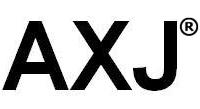Welcome to Actions for Justice ( AXJ ). We provide our Members with the most updated news and information from around the world 24/7/365. Stay Informed! AXJ is a nonprofit organization, and we depend on readers like you to help us do our important work of sharing ideas and knowledge from academia with the public. Your support keeps us going strong. Your Membership and donations will help us reach more people with more research-based journalism. Thank you.
If you have an urgent issue contact us now on: 1 (714 ) 655-0065.
THE FORECLOSURE FIASCO IN THE UNITED STATES
THE FORECLOSURE FIASCO IN THE UNITED STATES
By Americans Against Foreclosure ( AAF )
https://www.facebook.com/groups/aafhelpus/
Apparently we are only at the tip of the iceberg of the Mortgage, Real Estate and Financial Crisis in the United States.
Many AXJ Members are good parents, grandparents, and families who decided to buy a home or refinance their home in the last ten years.
So unsuspecting of the consequences they went to their real estate agent who told them they could get a great deal on a new home and that the banks were lending like crazy at low interest rates, "the lowest in thirty years" we all kept hearing.
So these families signed all the paperwork, and got a loan with ABC Mortgage Company at a minimum starter rate of 2% interest fixed for a couple of years. Great deal they thought. A low payment until the home went up in value and they could re-finance again in a couple of years.
THE PAPERWORK
So the family signed the purchase agreement, a promissory note to pay back the amount borrowed over 30 or 40 years, and a deed of trust ( DOT ) to secure the note on the property in case of default.
Well depending on the State these documents must legally be recorded on Title. Therefore we always recommend you do a Title Search and check your Chain of Title. Any reputable Real Estate Agent, Paralegal, Attorney, Escrow or Title company can do this for you.
Once you have it in hand publish it everywhere since they are public records and if fraud has been involved your State Attorney General will be made aware of it and can act on it. If they don't know they can do nothing, but if they do know and do nothing about it they can be IMPEACHED and removed from office. Ouch.
What to look for? Look at the names and positions of the people signing on behalf of the companies that have recorded the documents on Title. Check to see if they are true existing people and if they have in fact worked or been employees of the Companies they have signed on behalf of and legally representing.
If you notice same names but different signatures, that is a red flag. If you notice Notaries that just don't jive then something is up. If the dates and the places don't coincide then another red flag goes up. Make copies of all these documents and fax them and mail then immediately to the Attorney General to act on them. We pay them a lot of money to do their job. FRAUD IS FRAUD so don't let them give you the run around like the banks do. If they don't respond then consider having these people IMPEACHED and removed from public office asap.
Here are a couple of websites calling for audits of the 3,000 county land records in the US:
http://www.landtegrity.com/ and a petition: http://www.gopetition.com/petitions/mandated-national-land-record-a...
NOTICE OF DEFAULT ( NOD )
Life is good when you are working and making all your agreed mortgage payments on time, until the moment you lose your job or have a drop in income.
Since you are an average American and not part of the elite in government or making a six figure income, you look to your Lenders and Public Servants to help you out with the little financial crisis you start experiencing in 2007 so you immediately call your lender ( or most likely they call you ), and you explain your situation to them.
So the conversation goes something like this: Good morning, I am so and so and yada yada I don't think I can make my complete mortgage payment next month, can you help me?
Suddenly there is total silence on the other end of the line, you hear paper ruffling, people getting nervous, and the customer service agent immediately puts you on an extended HOLD!
After about 5 minutes he comes back on the phone and starts tap dancing but basically tells you that if you fall behind on your mortgage it will be reported on your credit, your FICO will drop, you neighbors will become aware of it, and basically that you are now a "loser".
Wow, at that point you hang up the phone and start thinking who you can call to help you out and keep this all hush hush.
Well the end of the month arrives, you are looking at your mortgage statement and about 20 reminders you have received in the mail, along with the daily telephone call from the bank pressuring to make the payment. The situation only gets worse and your blood and stress levels go through the roof.
After avoiding the persistent daily telephone call from the Bank, ( most agents have to call their lists of 100 to 500 borrowers every day at least once , you get the courage to talk with them and admit you are a "loser". You were not able to come up with the money to make the complete program and cannot repay it right now. Then you ask the stupid question, is there any alternative to Foreclosure?
At this point after a few months have gone by the Bank finally comes up with a plan, we will put you into a loan modification!
OMG, this sounds like a God sent miracle! President OBAMA has talked with his people and he is going to save your home and your family from living on the streets! At least four million requests were made between 2008 and 2012.
The agent at the Bank now becomes your best friend, so that night you pop open the champaign to celebrate, you invite your friends, family and neighbors over so that they see you are no longer a "loser" and tell everyone that OBAMA and his team of Public Servants ( at last count 1 million of them ), have saved you from losing your home. In reality only about 40,000 modifications were ever completed.
Life seems good and worth living again until the next day when you receive via certified mail the kiss of death, a NOTICE OF DEFAULT ( NOD ).
You sign receipt of it quickly and excited thinking it is good news from the Bank, but when you read it your face changes and your life starts falling apart again. But what does it say? What is it?
An NOD is nothing more than a legal document from the owner of your debt telling you that you have defaulted more than ( usually 90 days ) on your mortgage payments and that the owner of the debt either wants payment in full of the amount owed plus interest, legal fees, bogus fees, etc.
You must read your state law of the minimum requirements that a NOD should state for it to be considered legal and valid.
It is also normally recorded on Title as a public document so now everyone in the world has found out that you were celebrating not because you were going to save your family and your home, but because you will be losing your home soon and moving away.
Advice, if your NOD appears to be fraudulent post it on our website at: https://www.facebook.com/groups/aafhelpus/ so that our Paralegals and Attorneys can take a look at it.
THE PROMISE
But what about all the broken promises in writing from my lender stating they would not file a NOD or Foreclose on my property while they did the promised Loan Modification?
Four million home owners called to make sure nothing would happen and were greeted by pleasant loan officers assuring them that the NOD was only a formality and that the home would not be sold at an auction.
NOTICE OF TRUSTEE SALE
Next document to go out was a Notice of Trustee Sale. In some States in must be recorded so it is now a public record. Basically the Bank is telling you your time is up and your home, your family, and your life will be destroyed on a certain date in the future. By this time you have also received hundreds of calls from local Real Estate Agents and Brokers wanting to sell your home, etc.
Red flags to look for, who signed it? Who were they representing? Were the time frames respected?
MERS
Now comes MERS, the Mortgage Electronic Registration System. What is that? Why do we need an electronic system if our old manual one has been working fine for the last 200 years? Let's see what wiki has to say about them:
Mortgage Electronic Registration Systems, Inc. (MERS) is an American privately held company that operates an electronic registry designed to track servicing rights and ownership of mortgage loans in the United States.[1] MERS is owned by holding companyMERSCORP, Inc.
The real estate law and real estate transactions in the US are subject to state regulations and county level recordation requirements, since the time of the establishment of the US as an independent country.[2] That made it quite cumbersome for financial companies to develop a smooth operation of a market based on US mortgages in the early 1980s.[3] This is because every time a financial instrument containing mortgages is sold, various state laws may require that the sale of each such mortgage (or deed of trust) be recorded in the local county courts in order to preserve certain rights (e.g., the right to foreclose non-judicially), which triggers an obligation to pay corresponding recording fees.[4] So, the financial industry, eager to trade in mortgage-backed securities, needed to find a way around these recordation requirements, and this is how MERS was born to replace public recordation with a private one.[5] By 2007, MERS registered some two-thirds of all the home loans in the US.[6]
The company is the owner of record (or the owner's nominee) of the security interest arising from mortgages extended by lenders, investors and their loan servicers and recorded in county land records. By using MERS, the lenders and investors who are the real parties in interest avoid the need to file assignments in county land records, which lowers costs for lenders and, they claim, consumers by reducing county recording fee expenses resulting from real estate transfers[7] and provides a central source of information and tracking for mortgage loans.[8] The company's role in facilitating mortgage trading was relatively uncontroversial in its early days a decade ago, but continued fallout from the subprime mortgage crisis has put MERS at the center of several legal challenges disputing the company's right to initiate foreclosures. Should these challenges succeed, the US banking industry could face a renewed need for capitalization.[9]
In re Agard (U.S. Bankruptcy Court, Eastern District of New York)
On February 10, 2011, the U.S. Bankruptcy Court for the Eastern District of New York considered a motion for relief from the bankruptcy stay brought by U.S. Bank as the trustee of a securitization trust. U.S. Bank claimed the right to foreclose on the debtor's mortgage in part because of purported assignment of the mortgage from MERS. The court found itself constrained by the Rooker-Feldman doctrine to give effect to a prior state-court judgment of foreclosure, but went on to consider several arguments MERS advanced about its legal status and authority, noting that it had held off on deciding dozens of additional cases until those matters were clarified. The court found that MERS had no power as an agent to assign the mortgage under its rules, its membership agreement, or the terms of the mortgage itself. The court also found that MERS had no power as the mortgagee of record to assign the mortgage: "MERS's position that that it can be both the mortgagee and an agent of the mortgagee is absurd, at best."
The court observed,
MERS and its partners made the decision to create and operate under a business model that was designed large part to avoid the requirements of the traditional mortgage recording process. The Court does not accept the argument that because MERS may be involved with 50% of all residential mortgages in the country, that is reason enough for this Court to turn a blind eye to the fact that this process does not comply with the law.[30]Bain vs. Metropolitan Mortgage Group, Inc. (Washington Supreme Court)
In March 2012, Kristin Bain of Tukwila, WA filed suit against MERS (and a subsidiary) for foreclosing on her house without even disclosing the actual owner of her mortgage.[34]
In August 2012, the Washington Supreme Court ruled with Bain, saying that MERS was not a lawful beneficiary of her deed and did not have the right to appoint trustees. The decision states: "A plain reading of the statute leads us to conclude that only the actual holder of the promissory note or other instrument evidencing the obligation may be a beneficiary with the power to appoint a trustee to proceed with a nonjudicial foreclosure on real property. Simply put, if MERS does not hold the note, it is not a lawful beneficiary".[35]
Source: http://en.wikipedia.org/wiki/Mortgage_Electronic_Registration_Systems
So in a word, MERS has no power as an agent to assign the mortgage under its rules, its membership agreement, or the terms of the mortgage itself, and specifically dose not have the right to appoint trustees.
ROBO-SIGNING
Another fraud on the books are the so called Robo-Signed docs.
Further reading here:
http://www.nolo.com/legal-encyclopedia/false-affidavits-foreclosure...
THE REAL STORY
Now comes the best part, the direct involvement of our Public Servants in this whole Fiasco. Before we point any fingers the American People want to know what all these Attorney Generals are up to? Why are there no Court Trials before a Jury of American Citizens?
Let's read what Wiki has to say about our Attorney Generals that are supposed to protect the Law and ultimately the American People?
The state attorney general in each of the 50 U.S. states and territories is the chief legal advisor to the state government and the state's chief law enforcement officer. In some states, the attorney general serves as the head of a state department of justice, with responsibilities similar to those of the United States Department of Justice. Attorney generals are elected statewide in 43 states; 5 are appointed by their state's governor; 1 appointed by the legislature (Maine), and 1 appointed by the state supreme court (Tennessee).
The current party composition of the state Attorneys General are:
- 24 Democrats
- 26 Republicans
The composition for territories and districts are:
Table
List of attorneys general by U.S. states:
| Current Attorney General | Territory | Party | Took office | Term expires | Law School |
|---|---|---|---|---|---|
| Afa Ripley, Jr. | American Samoa | Democratic | 2007 | Appointed by Governor | California Western University |
| Irvin B. Nathan | District of Columbia | Democratic | 2011 | Appointed by Mayor | Columbia University |
| Leonardo Rapadas | Guam | Nonpartisan | 2011 | 2015 | Willamette University |
| Joey San Nicolas | Northern Marianas Islands | Republican | 2012 | Appointed by Governor | William Mitchell College of Law |
| Guillermo Somoza | Puerto Rico | New Progressive | 2010 | Appointed by Governor | Interamerican University of Puerto Rico |
| Vincent Frazer | Virgin Islands | Democratic | 2006 | Appointed by Governor | Howard University |
HOW TO FIGHT THE BANKS FROM STEALING YOUR HOME AND YOUR DREAM
http://www.scribd.com/doc/113707312/How-to-Fight-the-Banks-against-...
HOMEOWNER CLASS ACTION
https://www.facebook.com/groups/aafhelpus/doc/580305301986328/
SOURCES
From Wikipedia, the free encyclopedia
Securitization is a structured finance process that distributes risk by aggregating debt instruments in a pool, then issues new securities backed by the pool. The term “Securitisation” is derived from the fact that the form of financial instruments used to obtain funds from the investors are securities. As a portfolio risk backed by amortizing cash flows – and unlike general corporate debt – the credit quality of securitized debt is non-stationary due to changes in volatility that are time- and structure-dependent. If the transaction is properly structured and the pool performs as expected, the credit risk of all tranches of structured debt improves; if improperly structured, the affected tranches will experience dramatic credit deterioration and loss.[1] All assets can be securitized so long as they are associated with cash flow. Hence, the securities which are the outcome of Securitisation processes are termed asset-backed securities (ABS). From this perspective, Securitisation could also be defined as a financial process leading to an issue of an ABS.
Securitisation often utilizes a special purpose vehicle (SPV), alternatively known as a special purpose entity (SPE) or special purpose company (SPC), reducing the risk of bankruptcy and thereby obtaining lower interest rates from potential lenders. A credit derivative is also sometimes used to change the credit quality of the underlying portfolio so that it will be acceptable to the final investors. Securitisation has evolved from its tentative beginnings in the late 1970s to a vital funding source with an estimated outstanding of $10.24 trillion in the United States and $2.25 trillion in Europe as of the 2nd quarter of 2008. In 2007, ABS issuance amounted to $3,455 billion in the US and $652 billion in Europe. [2]
From Wikipedia, the free encyclopedia
A mortgage-backed security (MBS) is an asset-backed security or debt obligation that represents a claim on the cash flows from mortgage loans, most commonly on residential property.
First, mortgage loans are purchased from banks, mortgage companies, and other originators. Then, these loans are assembled into pools. This is done by government agencies, government-sponsored enterprises, and private entities, which may guarantee (securitize) them against risk of default associated with these mortgages. Mortgage-backed securities represent claims on the principal and payments on the loans in the pool, through a process known as Securitization. These securities are usually sold as bonds, but financial innovation has created a variety of securities that derive their ultimate value from mortgage pools.
Most MBS’s are issued by the Government National Mortgage Association (Ginnie Mae), a U.S. government agency, or the Federal National Mortgage Association (Fannie Mae) and the Federal Home Loan Mortgage Corporation (Freddie Mac), U.S. government-sponsored enterprises. Ginnie Mae, backed by the full faith and credit of the U.S. government, guarantees that investors receive timely payments. Fannie Mae and Freddie Mac also provide certain guarantees and, while not backed by the full faith and credit of the U.S. government, have special authority to borrow from the U.S. Treasury. Some private institutions, such as brokerage firms, banks, and homebuilders, also securitize mortgages, known as “private-label” mortgage securities.
Residential mortgages in the United States have the option to pay more than the required monthly payment (curtailment) or to pay off the loan in its entirety (prepayment). Because curtailment and prepayment affect the remaining loan principal, the monthly cash flow of an MBS is not known in advance, and therefore presents an additional risk to MBS investors.
Commercial mortgage-backed securities (CMBS) are secured by commercial and multifamily properties (such as apartment buildings, retail or office properties, hotels, schools, industrial properties and other commercial sites). The properties of these loans vary, with longer-term loans (5 years or longer) often being at fixed interest rates and having restrictions on prepayment, while shorter-term loans (1–3 years) are usually at variable rates and freely pre-payable.
From Wikipedia, the free encyclopedia
Collateralized debt obligations (CDOs) are a type of structured asset-backed security (ABS) whose value and payments are derived from a portfolio of fixed-income underlying assets. CDOs securities are split into different risk classes, or tranches, whereby “senior” tranches are considered the safest securities. Interest and principal payments are made in order of seniority, so that junior tranches offer higher coupon payments (and interest rates) or lower prices to compensate for additional default risk.
A few academics, analysts and investors such as Warren Buffett and the IMF‘s former chief economist Raghuram Rajan warned that CDOs, other ABSs and other derivatives spread risk and uncertainty about the value of the underlying assets more widely, rather than reduce risk through diversification. Following the onset of the 2007-2008 credit crunch, this view has gained substantial credibility. Credit rating agencies failed to adequately account for large risks (like a nationwide collapse of housing values) when rating CDOs and other ABSs.
Many CDOs are valued on a mark to market basis and thus have experienced substantial write-downs on the balance sheet as their market value has collapsed.
From Wikipedia, the free encyclopedia
A credit default swap (CDS) is a swap contract in which the buyer of the CDS makes a series of payments to the seller and, in exchange, receives a payoff if a credit instrument (typically a bond or loan) goes into default (fails to pay) [1]. Less commonly, the credit event that triggers the payoff can be a company undergoing restructuring, bankruptcy, or even just having its credit rating downgraded.
CDS contracts have been compared with insurance, because the buyer pays a premium and, in return, receives a sum of money if one of the events specified in the contract occurs. However, there are a number of differences between CDS and insurance, for example:
- The buyer of a CDS does not need to own the underlying security or other form of credit exposure; in fact the buyer does not even have to suffer a loss from the default event.[2][3][4][5] In contrast, to purchase insurance, the insured is generally expected to have an insurable interest such as owning a debt obligation;
- the seller need not be a regulated entity;
- the seller is not required to maintain any reserves to pay off buyers, although major CDS dealers are subject to bank capital requirements;
- insurers manage risk primarily by setting loss reserves based on the Law of large numbers, while dealers in CDS manage risk primarily by means of offsetting CDS (hedging) with other dealers and transactions in underlying bond markets;
- in the United States CDS contracts are generally subject to mark to market accounting, introducing income statement and balance sheet volatility that would not be present in an insurance contract;
- Hedge Accounting may not be available under US Generally Accepted Accounting Principles (GAAP) unless the requirements of FAS 133 are met. In practice this rarely happens.
While often described as insurance, credit default swaps differ from insurance in many significant ways. The cost of insurance is based on actuarial analysis. CDSs are derivatives whose cost is determined by the Black-Scholes option pricing model.
Insurance contracts require the disclosure of all risks involved. CDSs have no such requirement, and, as we have seen in the recent past, many of the risks are unknown or unknowable. Most significantly, unlike insurance companies, sellers of CDSs are not required to maintain any capital reserves to guarantee payment of claims. In that respect, a CDS is insurance that insures nothing.
GLOBAL VISITS
Sponsors
AXJ NEWS
© 2025 Created by AXJ USA.
Powered by
![]()
Badges | Report an Issue | Privacy Policy | Terms of Service








 BECOME A RESELLER AND MAKE $$$ NOW!
BECOME A RESELLER AND MAKE $$$ NOW!




 <\/a>
<\/a> 

You need to be a member of AXJ to add comments!
Join AXJ